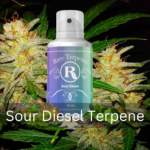In our fast-paced and demanding modern world, stress and anxiety have become prevalent concerns for many people. While there are various methods to address these issues, an increasing number of individuals are turning to cannabidiol (CBD) as a potential natural remedy. In this comprehensive guide, we will delve into the use of CBD for stress and anxiety relief, exploring its mechanisms of action and discussing its growing popularity, including its presence in France.
Understanding Stress and Anxiety
Stress and anxiety are natural responses to challenging situations, but when they become chronic or overwhelming, they can negatively impact our mental and physical well-being. Anxiety disorders are among the most common mental health issues globally, affecting millions of people.
How CBD May Help
CBD is believed to interact with the body’s endocannabinoid system (ECS), a complex network of receptors, endocannabinoids, and enzymes responsible for maintaining homeostasis. The ECS plays a crucial role in regulating various physiological processes, including mood, stress response, and sleep.
Studies suggest that CBD and HHCPO may influence the ECS in several ways, potentially leading to stress and anxiety relief:
- Reduction of Neurotransmitter Imbalances: CBD may help balance neurotransmitter levels in the brain, such as serotonin and GABA, which are associated with mood regulation.
- Anti-Inflammatory Effects: Chronic inflammation has been linked to anxiety and depression. CBD’s anti-inflammatory properties could potentially mitigate these symptoms.
- Neurogenesis: Some research indicates that CBD may promote the growth of new neurons in the hippocampus, a brain region associated with emotional regulation and memory.
Legal Status in France
In France, the use of CBD for stress and anxiety relief is legal, provided that CBD products adhere to the legal THC limit of less than 0.2%. French consumers have access to a wide range of CBD products, including oils, edibles, and topical creams, making it a viable option for those seeking natural anxiety relief.
Choosing the Right CBD Product
When considering using CBD for stress and anxiety, it’s essential to choose the right product and dosage. Here are some tips:
- Start with a Low Dose: Begin with a low dose of CBD and gradually increase it until you find the right dosage for your needs. This allows you to assess how your body responds to CBD.
- Choose High-Quality Products: Ensure that you select CBD products from reputable manufacturers that provide third-party lab testing results to verify product purity and potency.
- Consult a Healthcare Professional: If you have a preexisting medical condition or are taking medications, consult with a healthcare professional before incorporating CBD into your wellness routine.
- Consistency is Key: Consistency in CBD use is crucial for optimal results. It may take some time for your body to adjust to the compound and experience its full potential benefits.
The Future of CBD for Stress and Anxiety Relief in France
As awareness of CBD’s potential benefits for stress and anxiety continues to grow, France remains a significant player in the European CBD market. French consumers can access high-quality CBD products that comply with legal regulations, providing a natural and potentially effective option for managing these common mental health concerns.
In conclusion, CBD has emerged as a promising natural remedy for stress and anxiety relief, thanks to its potential to interact with the body’s endocannabinoid system. As research into CBD’s effects on mental health continues, it is essential to stay informed about the latest developments and consult with healthcare professionals when incorporating CBD into your wellness routine. With the legal availability of CBD in France, individuals have a valuable resource for exploring alternative approaches to managing stress and anxiety.
Medical Disclaimer:
The information provided in these blog posts is intended for general informational and educational purposes only. It is not a substitute for professional medical advice, diagnosis, or treatment. Always seek the advice of your physician or other qualified healthcare provider with any questions you may have regarding a medical condition. The use of any information provided in these blog posts is solely at your own risk. The authors and the website do not recommend or endorse any specific products, treatments, or procedures mentioned. Reliance on any information in these blog posts is solely at your own discretion.















